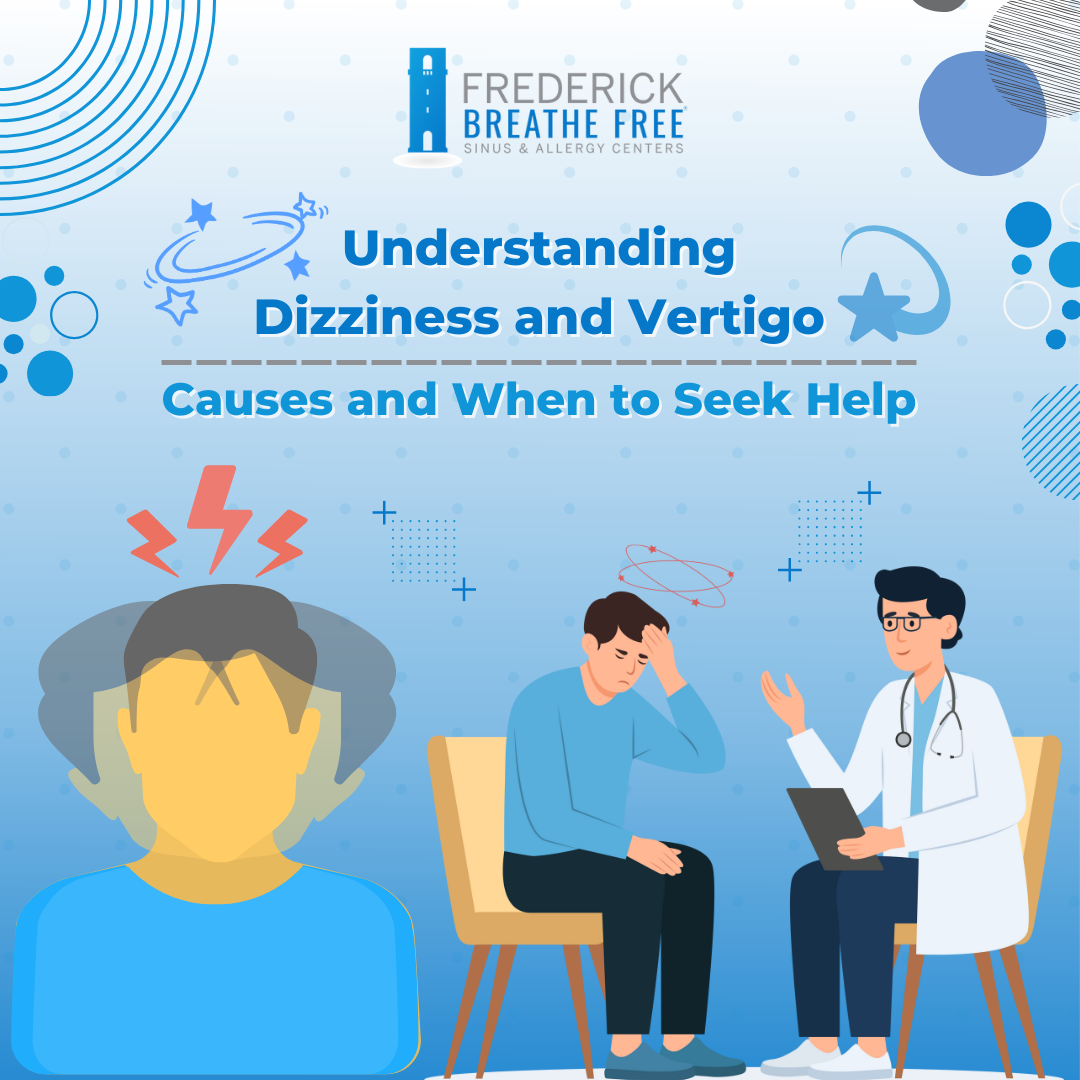Understanding Dizziness and Vertigo: Causes and When to Seek Help
Feeling dizzy is a common health issue faced by many adults. When people say they feel dizzy, it is often an umbrella term used to describe an array of related sensations including light-headedness, faintness, unsteadiness, or feeling wobbly.
Dizziness and vertigo are often used interchangeably. While there is nothing wrong with this, both terms describe two different sensations and if you want to know the underlying cause of your health concern and get the appropriate medical intervention, it is imperative to be able to distinguish between the two.

What Is Dizziness?
Dizziness is an overarching term used to describe a range of sensations including feeling weak, faint, light-headed, or wobbly. It can also make a person lose their balance.
Dizziness can result from a variety of factors. It can be caused by temporary environmental conditions or may be due to a more serious underlying condition. Dehydration, low blood sugar, anxiety, medication side effects, iron deficiency anemia, heat exhaustion, motion sickness, and low blood pressure are common causes of dizziness.
Common symptoms of dizziness
- Light-headedness
- Feeling faint
- Unsteadiness, making it difficult to walk in a straight line
- Loss of balance
- Wooziness or wobbliness
What Is Vertigo?
Vertigo is a type of dizziness that causes a sensation as though you or your surroundings are spinning. People with vertigo will usually include dizziness in their list of symptoms. Vertigo can result in sensations of spinning or tipping. It also impacts balance.
There are two types of vertigo:
- Peripheral vertigo is the most common type of vertigo, which results from issues with the inner ear or vestibular nerve, affecting balance.
- Central vertigo is the less common type of vertigo and occurs when there is a condition affecting the brain, like a stroke, an infection, or a traumatic brain injury.
Common symptoms of vertigo
- Dizziness
- Balance issues
- Nausea
- Vomiting
- Motion sickness
- Tinnitus (a ringing or buzzing sensation in the ears without an external source)
- A feeling of fullness in the ear
- Hearing issues
- Headaches
What Causes Dizziness and Vertigo?
The common causes of dizziness with vertigo include:
Benign paroxysmal positional vertigo (BPPV)
BPPV, or benign paroxysmal positional vertigo, is one of the most common causes of vertigo and dizziness. This is characterized by intense and brief episodes of dizziness due to sudden movements of the head like bending over, sitting up, or lying down. BPPV occurs when crystals in the inner ear (known as otoconia) break loose and become dislodged, falling into the wrong part of the semicircular canals in the inner ear. This causes the spinning sensation of vertigo.
BPPV only lasts for a few seconds to a minute and can range from mild to severe.
Meniere’s disease
Meniere’s disease is a recurrent issue in the inner ear, causing bouts of vertigo. It results from a build-up of fluid in the inner ear’s membranes, causing a feeling of pressure in the ears. These membranes can suddenly burst due to the fluid build-up, causing dizziness.
Meniere’s disease can cause repeated sudden episodes of vertigo that can last up to 20 minutes or even longer. It can also result in temporary hearing loss, tinnitus, or a feeling of fullness in the ear.
Vestibular migraine
Vestibular migraine is a type of migraine that causes dizziness. It usually occurs by sudden and quick movements of the head. Driving or riding in a vehicle or watching movements on TV can also trigger vestibular migraine.
Acute vestibular neuronitis
Acute vestibular neuronitis is an inflammation in the inner ear that can cause sudden and intense episodes of vertigo. This may also cause nausea and vomiting and can last for several days. Vestibular neuronitis will generally resolve on its own but the symptoms may be very disabling.
Other causes
Other causes of dizziness with vertigo may include other medical conditions like low blood pressure and other disorders affecting the brain. Anxiety and stress can also cause and intensify symptoms, especially if the dizziness doesn’t result from problems with the inner ear.
What Can I Do to Ease the Symptoms?
- Avoid moving the head quickly and suddenly, bending down, getting up too fast from a sitting down or lying position, and extending the neck.
- Keep stress in check and learn ways to manage anxiety.
- Keep yourself hydrated and eat regular meals.
- Rest and get enough sleep.
- Avoid substances like caffeine, alcohol, or nicotine that can make symptoms worse.
- Manage medications that cause dizziness or vertigo.
When Should I Seek Professional Help?
Generally, it is a good idea to seek professional help if you are prone to dizziness, vertigo, or light-headedness. Do not hesitate to see our providers at Frederick Breathe Free if your symptoms become persistent, don’t go away, or are starting to significantly impact your life.
We will conduct several tests and look into your medical history to diagnose your condition. The correct treatment plan will address the underlying condition to clear up your symptoms. Contact us today!





.png)
